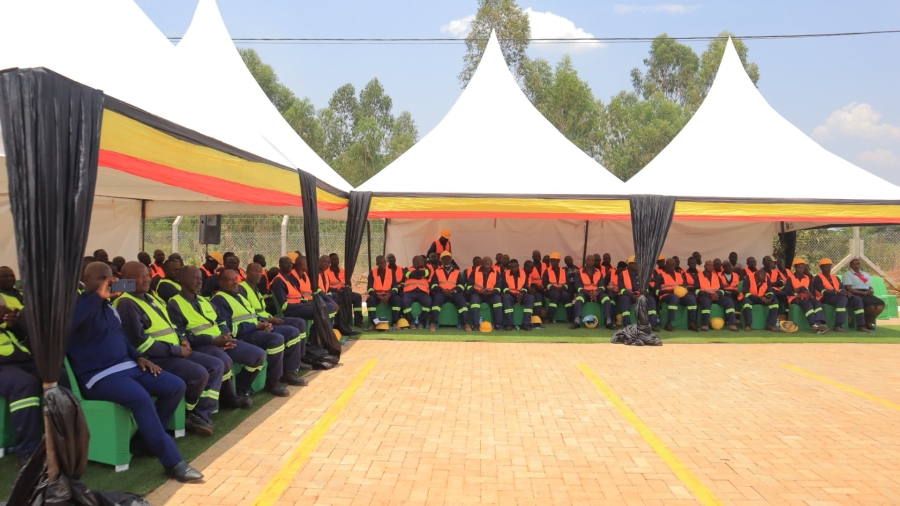The Ministry of Works and Transport proudly celebrates the successful completion of the inaugural Operator Training program at the Mechanical Engineering Training and Advisory Centre (METRAC) in Kakinzi, Luwero. This significant milestone was marked by an event attended by key stakeholders, trainers, and trainees alike, culminating in the graduation of 65 operators and mechanical supervisors from across Uganda.
The event was graced by esteemed guests, including a representative of the Honorable Minister of State for Works, the LC IV Chairperson, the Chief Administrative Officer of Luwero, a representative of the Engineer in Chief, and other senior officers from the Ministry, participants, and guests.
The operator training program, held over a period of two weeks, focused on road construction and maintenance equipment procured by the Government of Uganda from Japan. It covered essential skills in equipment care, operation, and management to enhance safety, productivity, and efficiency. The training is part of the Ministry’s broader effort to address the shortage of skilled operators, which has historically hampered the effective utilization of road construction machinery.
The trainees, representing 10 districts including Abim, Apac, Arua, Amuria, Amuru, Butaleja, Kayunga, Kyotera, Kasese, and Nabilatuk, successfully completed rigorous theoretical and practical sessions, acquiring the critical skills necessary for maintaining and operating road construction machinery. Their commitment to the program reflects their dedication to improving the infrastructure of their districts and contributing to the country's broader development goals.
The event’s guest speakers expressed their appreciation for the efforts of all involved, particularly the Ministry’s team and METRAC’s leadership, for their commitment to delivering quality training. They emphasized that the knowledge gained by the trainees would be a significant asset in ensuring that the country’s road network is well-maintained and managed efficiently.
The Chief Mechanical Engineer (CME), represented by Eng. Winfred Naluyinda, the Assistant Commissioner in charge of Inspection highlighted the importance of the three key elements that underpin success in the field: Man, Machinery, and Materials. The program was designed not only to provide technical skills but also to instill a sense of responsibility in operators regarding the care and maintenance of the machinery they work with. Effective management of these resources is essential to ensuring the longevity and productivity of Uganda's road infrastructure.
The Ministry of Works and Transport, through its partnership with the Government of Japan, continues to prioritize capacity building to improve the road construction sector. The establishment of METRAC is a critical step in strengthening the skills of operators nationwide. The training at METRAC aims to ensure that operators can maximize the use of the equipment, thereby increasing durability, reducing maintenance costs, and enhancing overall performance.
In line with this effort, the Government has introduced a mandatory annual training and certification program to ensure operators remain up to date with best practices and operational standards. As emphasized by the Training Center’s Principal, Ivan Watta, the correct handling and maintenance of equipment can lead to significant cost savings, potentially reducing road maintenance costs by up to 20% of the contract price.
As the trainees complete their certification, they are now equipped with the skills and knowledge to contribute meaningfully to the maintenance of the nation’s roads. The Ministry encourages them to apply what they’ve learned in their respective districts, ensuring that the machinery operates safely, efficiently, and with minimal downtime.
As the ceremony concluded, the successful trainees were awarded their certificates, marking the official end of the training program. The Ministry remains committed to ensuring the continued development of skills that are critical for the effective management of road equipment, and the success of this program is a shining example of what can be achieved when knowledge is shared and applied for the common good.

